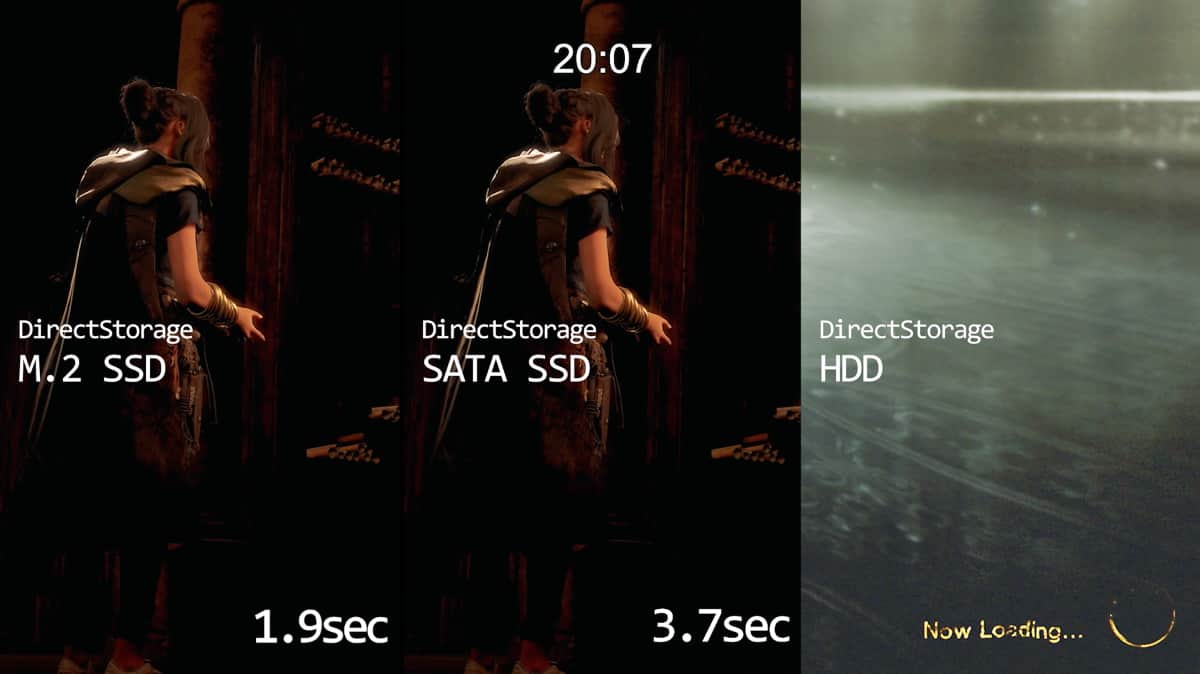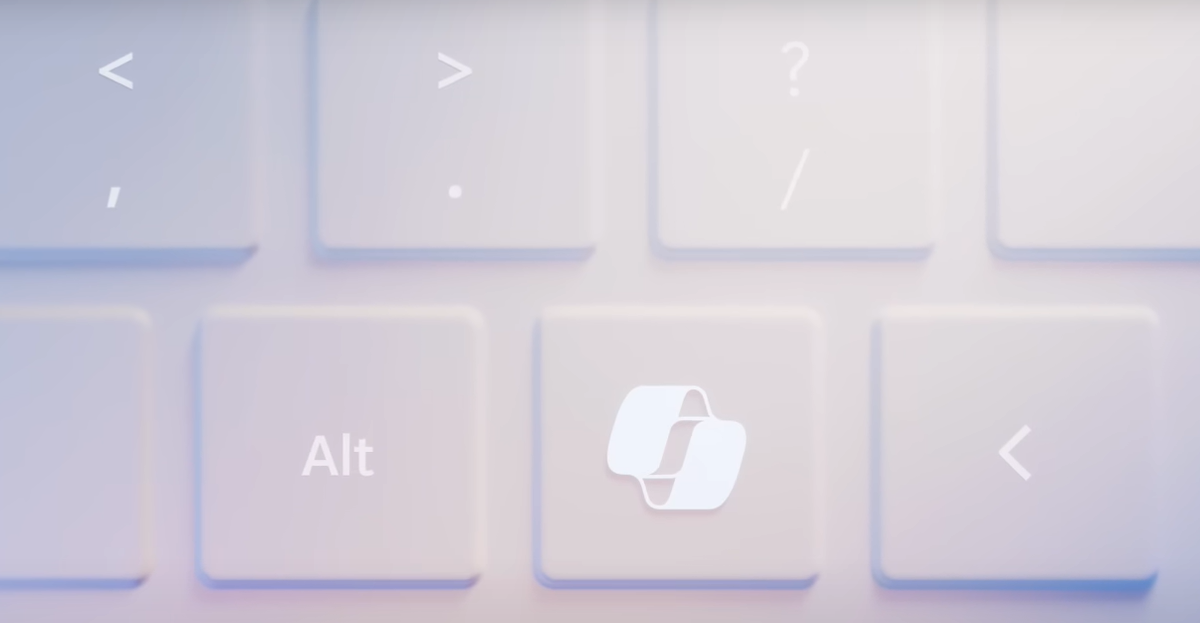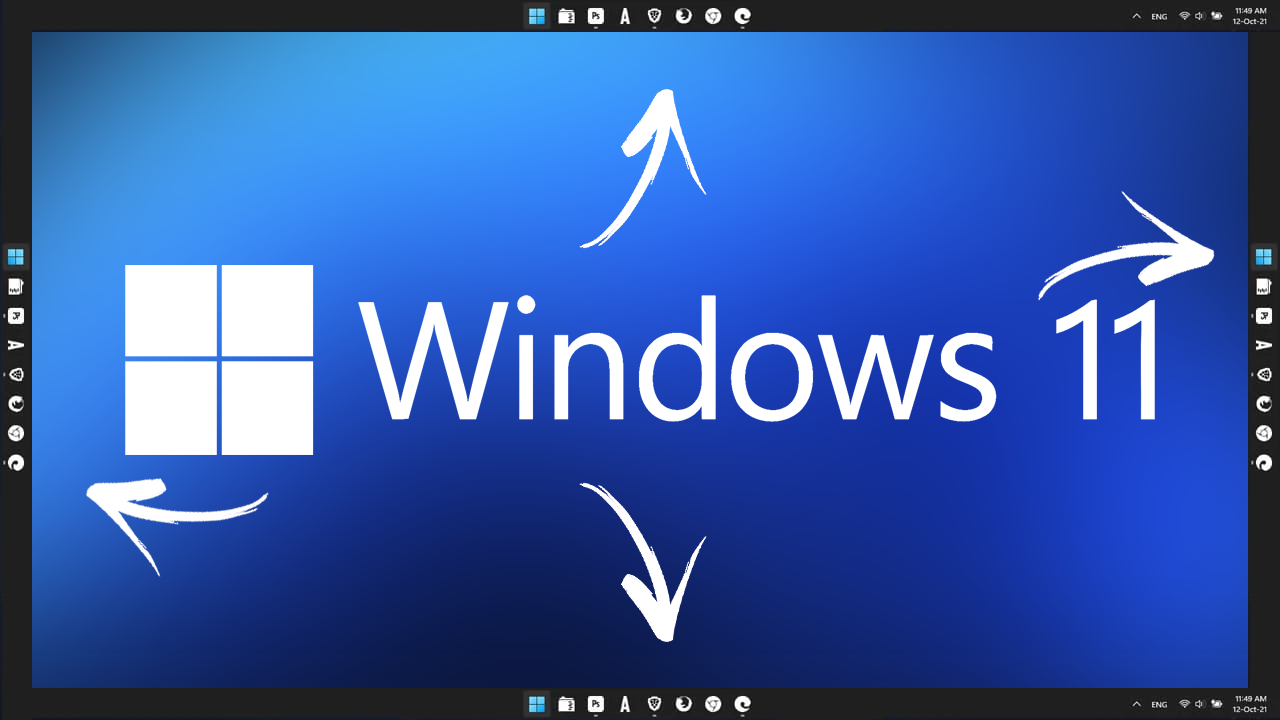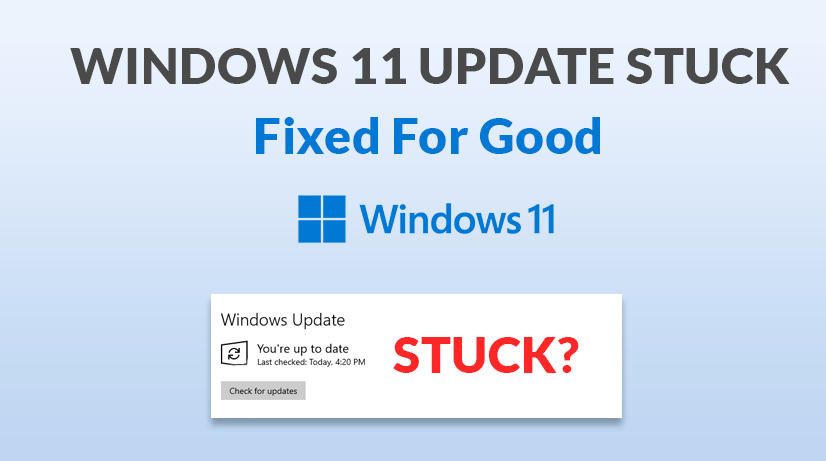Report: Microsoft wants SSD boot drives in Windows PCs

Microsoft appears to be pushing manufacturers of Windows PCs to ship Windows 11 devices with Solid State Drives (SSD), according to a report by storage industry analyst Trendfocus.
Windows 11 PC manufacturer may use platter-based hard drives or Solid State Drives, as current requirements focus on storage space exclusively. According to the Windows 11 minimum system requirements, Windows 11 devices need to have at least 64 Gigabytes of storage.
One operating system feature, DirectStorage, requires an NVMe SSD, but it is an optional feature that would just not be available on devices with classic hard drives or non-NVMe Solid State Drives. DirectStorage promises to improve the loading performance of PC games.
On average, Solid State Drives offer better performance than classic hard drives. The user experience would improve on most devices, if classic hard drives would be replaced with SSDs. Not all SSDs offer the same level of performance, as low-budget SSDs often fail to take advantage of the technology.
Manufacturers on the other hand do not seem to be to happy about it, and the main reason for that boils down to cost. Classic hard drives are cheaper than Solid State Drives: a 1TB hard drive start at around $30 if you buy them to build a PC from scratch. Manufacturers may get them for even less. SSDs with 1TB of storage start at around $60, on the other hand.
Manufacturers could cut the storage capacity of the SSD in half or reduce it even more to bring down costs, but that would make the device less attractive.
The decision to push manufacturers to use SSDs in their devices affects low-budget devices for the most part. Most PCs use Solid State Drives already as the boot device, but the capacity of the SSD is usually less than 256 GB. Some PCs use hybrid storage solutions, a SSD for the operating system and booting, and a platter-based drive for storage.
Closing Words
Replacing a platter-based boot drive with a Solid State Drive improves the boot performance and operations noticeably. Microsoft has not changed the requirements for its Windows 11 operating system, but there is a chance that it will do so in the coming year. It is unclear whether the change would block PCs with classic hard drives from receiving future Windows 11 updates, but enforcement would certainly lead to catastrophe and confusion.
Even more manufactures might switch to a hybrid solution that adds a boot SSD with limited capacity and a larger platter-based drive to PCs. It is a good compromise, but adds another component to the PC.
Now You: which storage devices do you use on your PCs?



















Are SSDs super reliable yet? Do they still brick unrecoverably? I’ve been avoiding them till now until the manufacturers know wtf they’re doing and the MTBF is till after I’m dead.
6 years using SSD never had one fail on me.
Sucks how bloated Windows is now though that it requires one.
the last hdd i bought lasted about 2.5 years. so, it’s really bloody pot luck. then again, i don’t have any data that i can’t live without.
I have a combination of Intel Optane Memory, RAM memory and a HDD with 4tb. For me it is fast enough, though it is slower as a SSD. The main reasons to buy this desktop were price and enough storage for my vast collection of Nikon raw files (NEF) and videos.
The problem with Optane is you must now use an app from Microsoft Store, and reading peoples experiences I not am keen of using it. The original Optane software is no longer supported.
My systems are all HEDT so boot times are a joke.
But I wonder why M$ is pushing SSDs? Maybe because the programming is so bad, and the OS is full of so much bloat it can’t boot in any sort of sane time without a SSD.
I bought a laptop that took 3+ minutes to boot it. Put in a Samsung 960 Evo at the time and it booted in a few seconds. SSDs make a difference, but what would be really good is for M$ to hire competent programmers and get rid of the bloat. Get rid of their mentality of “Always write bad code”.
I see so many clients running over 300 – 400 processes after boot it’s no wonder it’s slow. My PCs run 50 – 55 processes after boot.
My Windows 7’s is 17 processes after boot.
NO!
I will continue to force my computer to boot off my 36 year old Seagate 20MB MFM drive, and Microsoft will learn it, live it, love it.
Microsoft is telling OEM manufacturers to stop cheaping-out with crap HDDs and stick to using SSDs on PCs shipped with windows. Sounds ok.
Sad how bloated Windows has become that it requires a solid-state drive. After Windows 8 it become more bloated than ever. Windows 11 is even more bloated than 10. There’s too much bloated web technologies in the backend and buggy XAML garbage over the top.
What they actually said was:
Our OS is incredibly slow and bloated, so rather than fix the impossible we will make Windows look better by forcing you to upgrade to new hardware. New faster hardware Windows becomes faster! It’s magic!
Such a garbage operating system.
I switched to using SSD (Samsung EVO Plus 970 NVMe M.2) a few years ago on two Dell desktops that came with slow spinning hard drives (5400 rpm). It was a noticeable improvement not just in boot up time but overall performance. It was even better when I switched from Windows 10 to 8.1 as the older OS is leaner and does not use as many resources.
However for data backups I still use hard drives in a Western Digital NAS (Network attached storage), two drives in a RAID configuration for redundancy (data is mirrored across each drive so if one should fail data is not lost). I also use a hard drive to backup any critical data and then store it in a fire safe (should something happen to the NAS). This allows for full control over my data at all times without the need for an Internet connection unlike cloud storage. It also allows for very fast data transfers as everything stays on my local home network.
As Monty states, SSD’s may be unreliable for long-term storage for a few reasons. For one, repeated attempts to optimize the drive, as has happened in the Windows 10 May 2020 update, which caused drives to die from excessive use. Second, if not in active use, the charge in the microscopic capacitors holding data in each cell slowly fades away.
For long term storage, and economical storage of large amounts of data, HDD’s still have some advantages.
Where do you take it from that weekly TRIM commands pose any danger? I have yet to see an NVME or SSD fail from it. I have / had 10 SSDs from various brands and only OCZ died. One Crucial was broken upon arrival and refunded within the 14 day limit without need to jusitfy.
Also why would you power storage down? Idle drives break faster. It’s nothing special for me either to have HDDs with 50000 – 60000++ hours runtime. In case of SSDs just let the firmware keep the cells refreshed. Modern hardware in idle mode consumes neglible amounts of power.
I use a combination of both but I never install games on the same drive as my OS nor do I store data on it.
I’ve been using windows since 3.1 and have learned the hard way not to keep anything I don’t want to lose on the same drive as the OS.
I use a small NVMe for the OS and I have a WD Black HDD I use for most games. I also have a WD 2.5″ SSD I use for a few games that can benifit from it.
As for prices in the US currently they are quite low. For under $100 you can get a 1TB SSD ($140 for the newer PCIe4) or a 6TB HDD.
HDD still last far longer then SSD so don’t count them out yet. When quantum crystalinne storage comes out, maybe I’ll sawp then ;)
I replaced my hard disks a while ago, as they were at the end of their tether after 10 years of use.
I swapped the system disk for an SSD. The data disk was replaced with another HDD.
I bought a widely-praised 256 GB Samsung SSD as a system disk. I did not notice any difference in speed.
The program Hard Disk Sentinel said right away that my SSD had only 75 % performance and 93 % health. My hard disks score 100 % on both counts. Despite some research, I’m at a loss explaining that.
What OS are you using? If you are using Windows 7 and below, there’s hardly any difference. I still use 15+ years old PC with HDD for some browsing and downloading.
Windows 10 boots in 5 minutes with 0% fragmented drive in my system, I changed that to SSD and the boot time became less than 30 seconds.
You must have placed Windows system files in HDD if you don’t notice any difference or you got broken SSD, did you notice the red flags from Hard Disk Sentinel?
5 minutes for HDD with 0% frag? Impossible you cant defrag and HDD to 0%, I doubt both assertions, what system is this single core 800MHz CPU?
30 seconds for SSD? what? try like 9 seconds tops and cold boot with fast startup disabled.
9 secs top? From pressing power button on my PC to desktop being usable is roughly 1min on my desktop PC running 3900x and nvme ssd. I have a lot of stuff installed on my personal machine though, have to wait for everything to startup. Don’t want to know how long it would take on a hard drive.
My laptop start up a lot faster, it’s an i7 with nvme and can get into the desktop fully loaded about 40sec.
9 sec sounds reasonable on a desktop with bios fast start set to ultra mode and a fresh install of windows with no programs installed.
lol it’s very possible, kid, are you new to computer?
Here’s proof: https://ibb.co/8gyq90g
Then you really REALLY botched your computer if you did not notice the 80% reduction in Windows boot times.
@ John B
“Then you really REALLY botched your computer if you did not notice the 80% reduction in Windows boot times.”
Botching a computer does not mean a thing. That’s just a thinly veiled insult by someone who does not know much about tech.
@ Anonymous
“If you are using Windows 7 and below, there’s hardly any difference.”
Yes, I’m on W 7. First time I hear SSDs are not supposed to make a difference on W 7. Also, Hard Disk Sentinel shows a 75 % performance, and that figure is supposed to be 100 % if a disk is new. It’s not supposed to be OS-specific.
“You must have placed Windows system files in HDD if you don’t notice any difference or you got broken SSD, did you notice the red flags from Hard Disk Sentinel?”
Yes, I have a custom installation where part of the system files are on the data disk (essentially “user” files, if I remember correctly). This is a Microsoft-approved setup, although it’s indeed unusual.
I don’t know what you mean with red flags. You seem to say that SSDs only offer more speed at startup. That’s not my understanding. They are supposed to speed up the PC anytime the OS is used, if you put the OS on them. 5 minutes to launch a computer seems horribly long to me. I don’t think I ever got that.
If you are on Windows 7 then it’s end of discussion. You won’t see any difference in there. Try again after you use Windows 10 above.
Hard Disk Sentinel does not shows 100% is a red flag, did you buy used SSD? A new drive should be 100%. You might want to check with the seller.
“platter-based hard drives”
The usual/common term is “hard disk drive.” (HDD for those who love their TLAs.)
So after TMP, SSDs… MS should stop dictating hardware and start supporting what the market provides.
SSD’s may be coming down in price on the lower capacities but they are not decreasing fast enough nor are they delivering higher capacities or higher reliability in relation to costs.
SSD drives are great but there are issues.
Spinning HDD’s will have a place for the foreseeable future. Cloud storage is probably one of the worst things anyone could depend on and should only be used as an absolute last option.
A platter-based drive can safely wipe ALL traces of file records, session history for opening documents and internet browser cache effectively without degrading its hardware performance per cleanup and erasure. They can also be magnetically refreshed with particular software programs, they can last a fair 2000 days (48000 hours) before changing them out, and when virus damaged (sector corruption) the data has a better chance of data recovery with the surviving sectors as opposed to a SSD’s memory modules corrupting electronically. If an SSD could provide all those extra benefits, accompanied with the price and capacity, everybody would move forward away from platter-based drives.
A pointless argument, because those people who got serious dirt on them would use Dmcrypt/LUKS anyway.
Why wipe anything that cannot be decrypted without serious forms of torture? Btw, if you physically destroy a keyfile on a separate microsd the password itself is useless too.
How was dread pirate roberts caught? They pulled him away in a public library before he could lock down his laptop.
SSD is becoming more affordable. many are now using cloud for data. Why would you opt for slower spinning disks?
@Anonymous,
SSDs don’t spin.
Some of us avoid the cloud as much as possible. I store everything on my own drives and I work only with apps that are installed on my computers. I don’t care about a few seconds boot up time. I do care about how long a drive lasts. So – I will be sticking with HDDs for the foreseeable future. I will also be avoiding Windows 11.
SSDs are way more than just the boot up time, switching to an SSD for your OS drive speeds up every task you do. It’s a huge difference in time savings & the feel of how responsive your system is. If you are concerned about data loss just get a 250/500gb ssd to use as your boot drive and have a backup program that schedules taking a drive image of it, doesn’t take up too much HDD space to keep the backup and you get the huge speed benefits of the SSD.
oddly, my hdds have been dying faster than my ssd…
I think usage would also matter. I have a computer just for backups, and I use 2 4 Tb spinning discs for that.
That might be confusing- that is two 4TB discs.
The two main reasons are price and available storage space. If both would offer the same, barely anyone would pick a platter-based drive.
There is another, important difference : on SSDs, it’s impossible to deep-erase data, contrary to hard disks. You have to assume that deleted files are recoverable.
This is dangerous if you live in an authoritarian country, and the police could find proof of incriminating opinions on your computer. And it mandates that SSDs are physically destroyed once you stop using them.
Since a significant part of the West can be now classified under the category of authoritarian countries where expressing the wrong opinions might ruin your life, prosperity, liberty and happiness, this is an important, and unfortunate development.
Microsoft mandating SSDs ? It’s the same company which offers an encrypting scheme which almost certainly has a backdoor. Or a cloud service which is not end-to-end encrypted, and where you run the risk of your files being exposed to some government if they are the wrong ones.
Untrue, if the SSD employs TRIM then the data will be lost once deleted. I accidentally lost a clients data when reinstalling MacOS on their computer. I sent it into the biggest data recovery lab in my country named Payam and paid over $1000 for their service and they were not able to recover any data. I also called a few other specialists and they confirmed the same thing that unless TRIM is disabled (enabled by default on any modern OS) then the data is unrecoverable.
@Clairvaux
While you make some good points, there is too much hyperbole in your post.
“Since a significant part of the West can be now classified under the category of authoritarian countries where expressing the wrong opinions might ruin your life…”
“the same company which offers an encrypting scheme which almost certainly has a backdoor…”
Please give some examples of these statements that show that they are true.
@Trey
Ask Edward Snowden, Julian Assange or Katherine Gun and many other modern day heros (and their families) how they feel about western government persecution and harassment.
@ Trey
Sorry, no. I won’t give any “examples” of Western governments obstructing freedom of speech. This is not a political forum. If you’re not aware of the obvious and pervasive problem, learn about it in relevant places : read books, read newspapers.
Also, no “examples” can be given of suspicions of Bitlocker being backdoored, since by definition that’s a secret. What Microsoft sends to its servers as “telemetry” is encrypted, and nobody knows what’s in it. Again, start with a Google search, educate yourself. The subject cannot be addressed in a short blog comment.
Finally, you accuse me of “hyperbole”, so obviously any “examples” I could give would be dismissed. I know your type. It’s useless to engage with you. There is truth, and there is the opposite of truth. I don’t know what “hyberbole” is.
More like can’t give any examples.
“Hyperbole” would unlikely be mentioned if examples were provided, but providing examples would require a political forum. We’re in the situation of what has been said is too little or too much. IMO the very statement of “Western governments obstructing freedom of speech” is political, so I’d consider either avoiding such a statement or carrying it out extensively. Given liberty here, the latter I believe would,’t be condemned.
Where have you been for the last couple of years? Because you can’t comprehend something, it doesn’t mean it isn’t happening.
Full disk encryption comes to the rescue.
Who are you trying to fool? Not all SSDs support hardware encryption and just because data is encrypted doesn’t mean certain gov agencies have no way around them via the 1001 known exploits to work around getting encryption keys.
You supposedly self professed journalist should know there is no sure thing as security in technology and trying to say otherwise is questionable at the very least
You do read security news right?.
I’m not sure what you are getting at, but if you want to go down that route, you could say that nothing is 100% secure. In most cases, encryption is working fine to prevent access to a system. Home users should use it to protect their data, e.g., when a device is stolen. If you are a high profile target, then you may want to use additional layers of protection and security.
@Martin
I can say with 100% confidence and based on facts that security in tech is a myth, Sure you can add layers upon layers but none will save you in the end.
The general hardware itself is vulnerable to any variety of exploits, not just the known ones but the ones which are kept in arsenals of government agencies and certain collectives which operate under government sponsorship and other individuals, never mind the unknown unknown (the iceberg beneath the surface).
There are certain varieties of malware which target HDD/SSD controllers, Bios/UEFI flash chips other flash chips (including the infamous TPM) any flash chip which is writable/readable and are undetectable for long periods (or forever) by even the most secure minded experts, in these cases a complete set of new hardware is the only solution to get rid of that. This type of malware, any of your layers and layers of security are meaningless, encryption is meaningless and nothing you do is secure.
Under normal circumstances for the average individuals which if they get their machines stolen and if it ends up in the hands of lazy unskilled fences and it wast a circumstance where the individuals weren’t a target, sure maybe encryption will have a minimal impact and you just lost the machine and your data maybe wiped and machine sold, otherwise its moot, all layers are just a challenge for a really determined and skilled person trying to bypass it.
And its made easier because most average people dont keep up with updates and often are running OS’s with known unpatched security vulnerabilities.
And this is one very small aspect of the whole picture, if you have a PC that is just out of warranty and manufacturer stopped pushing Bios/Intel ME updates, enter the infamous intel ME, which I guarantee in most cases will be at a version which contain known unpatched exploitable code, and since this chip has access to everything else and bypasses certain layers, good luck then.
Not to mention Bios/UEFI known exploits which have gone unpatched and they will open doors to bypass some security layers. No one can afford to keep buying a new PC/Laptop every two years to have the basic components like bios/uefi/me minimally patched.
Now as a journalist you know that corporations have little no accountability/oversight where they should be held responsible for providing security patches for bios/uefi/me for the foreseen life expectancy of the hardware, but they dont only maybe to other corporate customers and never to the end users.
Planned obsolesce FTW. Now you have here a few great articles to do write ups about and none are based on fiction all is factual.
System disk encryption is risky. Either you use the one provided by Microsoft (assuming Windows), and there’s no telling Microsoft can’t have a look. Or you use Vera Crypt, a highly geeky, badly documented, badly-funded program, and you risk being locked out if something goes wrong.
Vera Crypt is basically one guy doing this in his free time. There’s still no proper documentation after all those years (I mean : reasonably exhaustive, properly explaining concepts to ordinary mortals, etc). Some models of SSDs wil slow down considerably when encrypted with it. It’s an aknowledged problem which has never been solved, as far as I know.
There is always the risk of being logged out when it comes to encryption. Forget the password, and you are out, usually. I never had any issues with using VeraCrypt, but the experience may be different for others, of course.
@Clairvaux
Agreed. SSDs are not as secure as harddrive, and disk encryption is not a perfect solution.
Tech companies keep making choices that reduce the security and privacy of consumers.